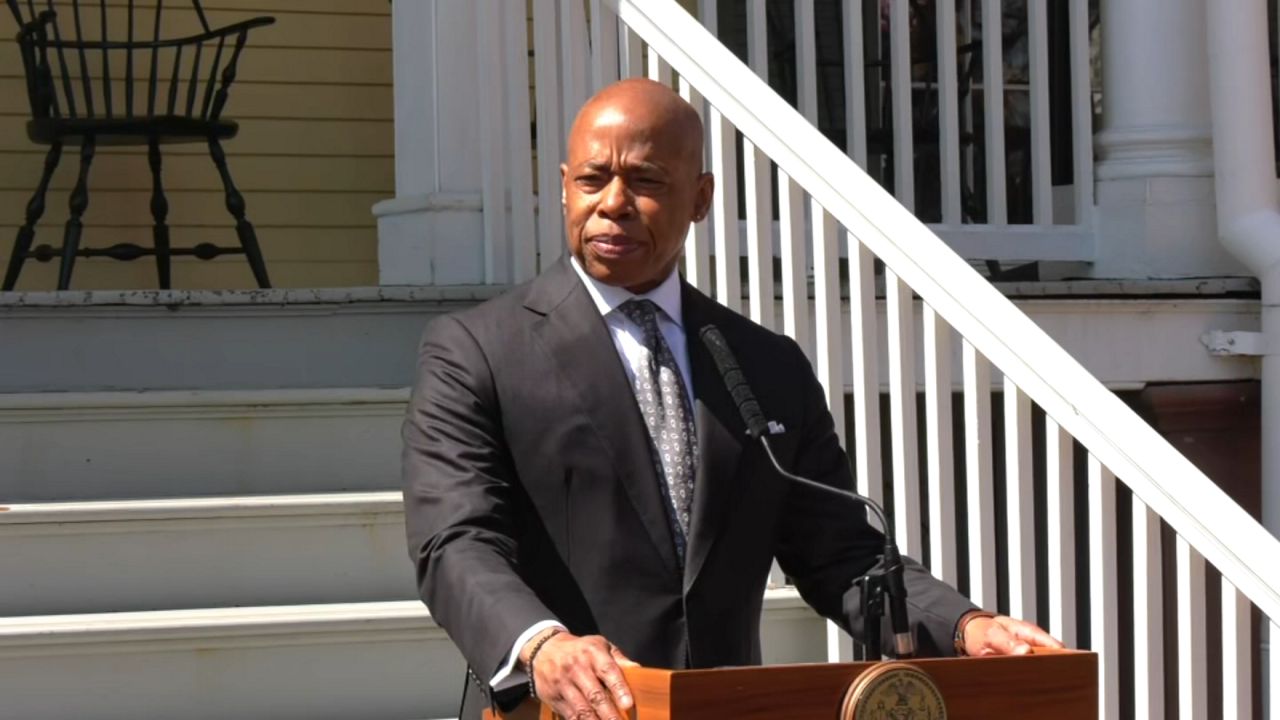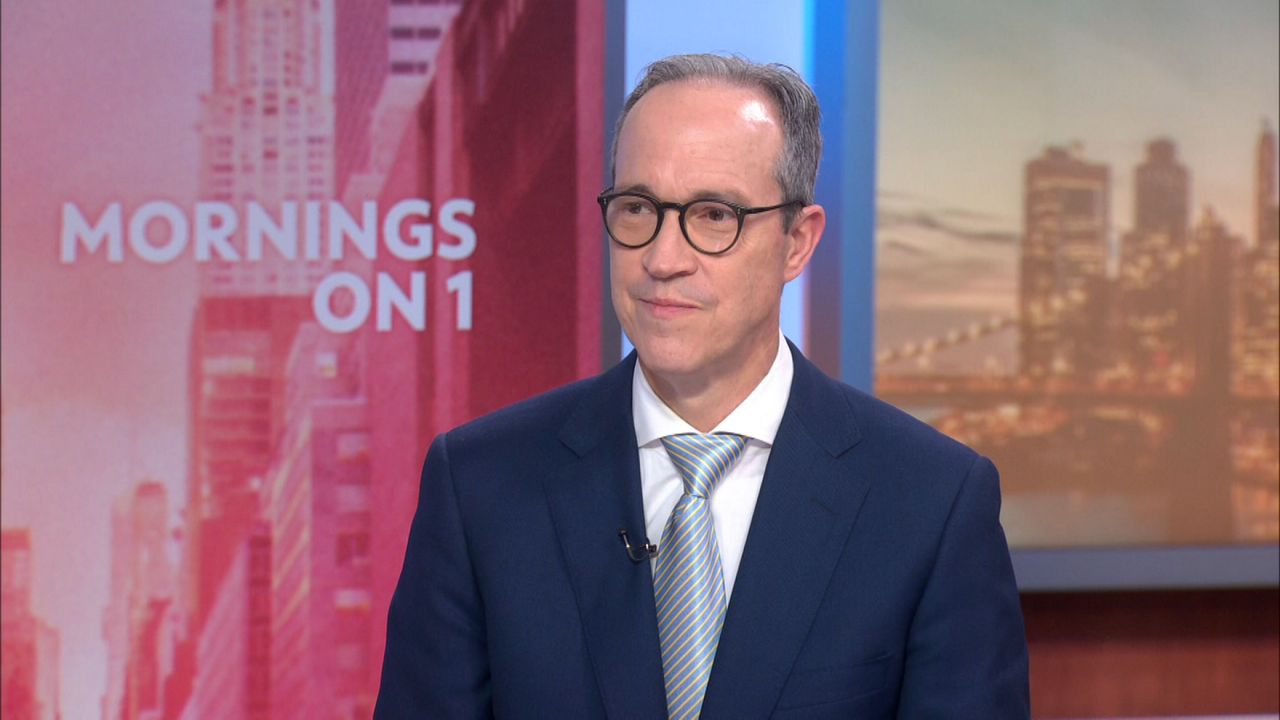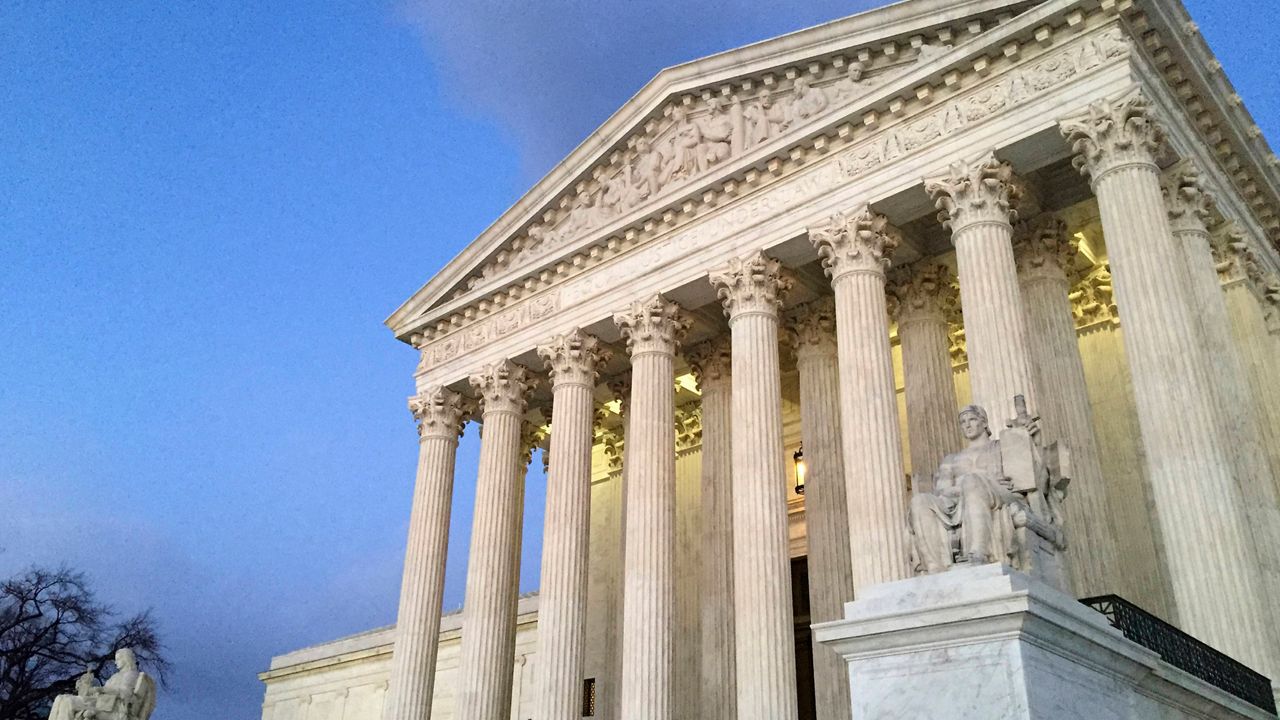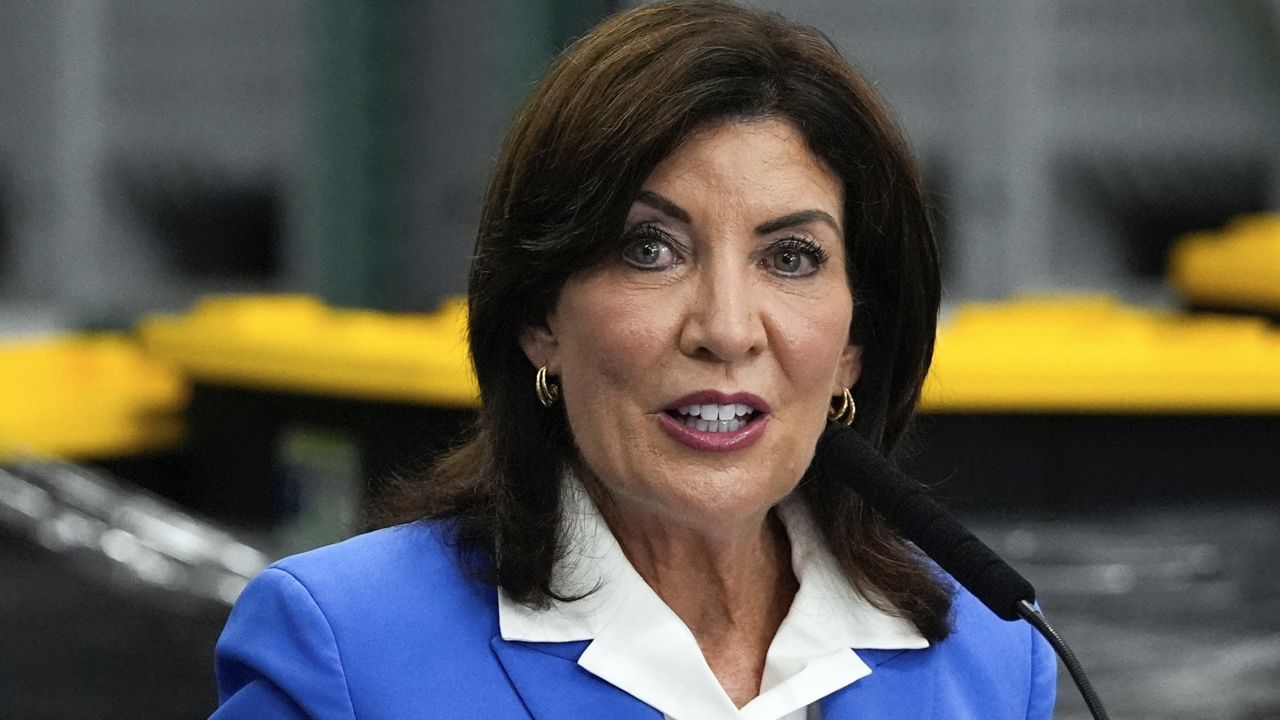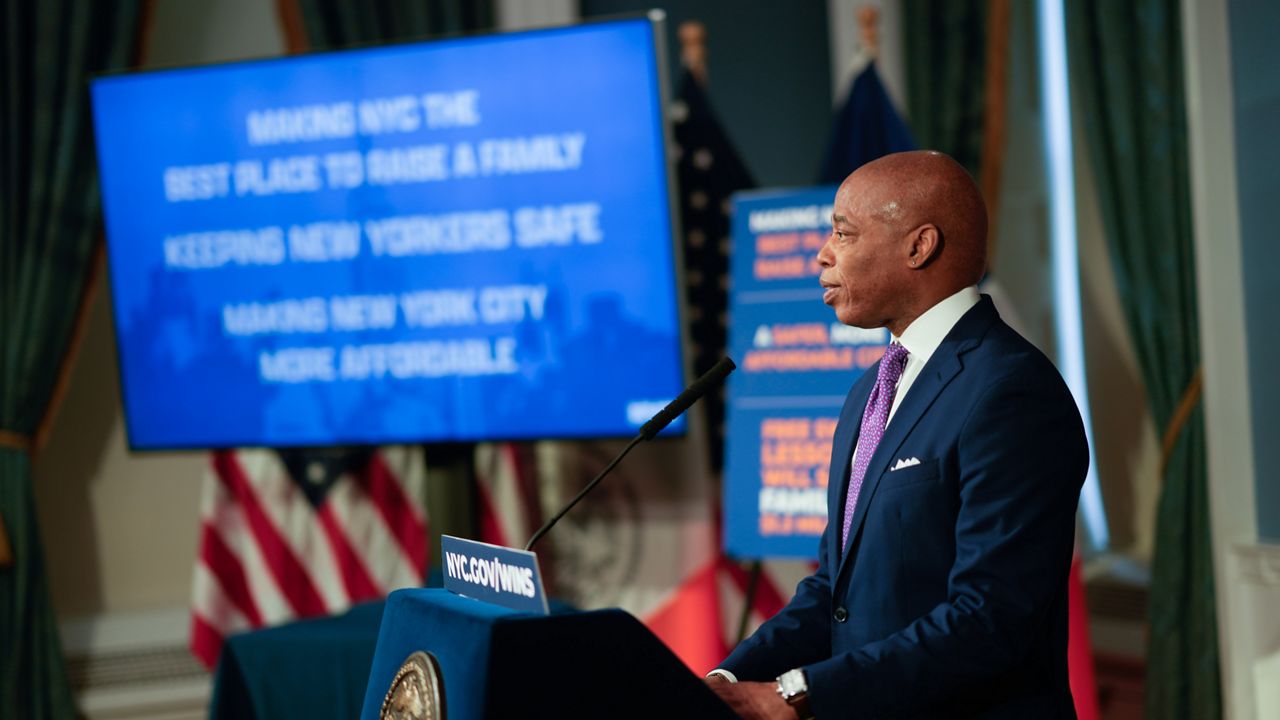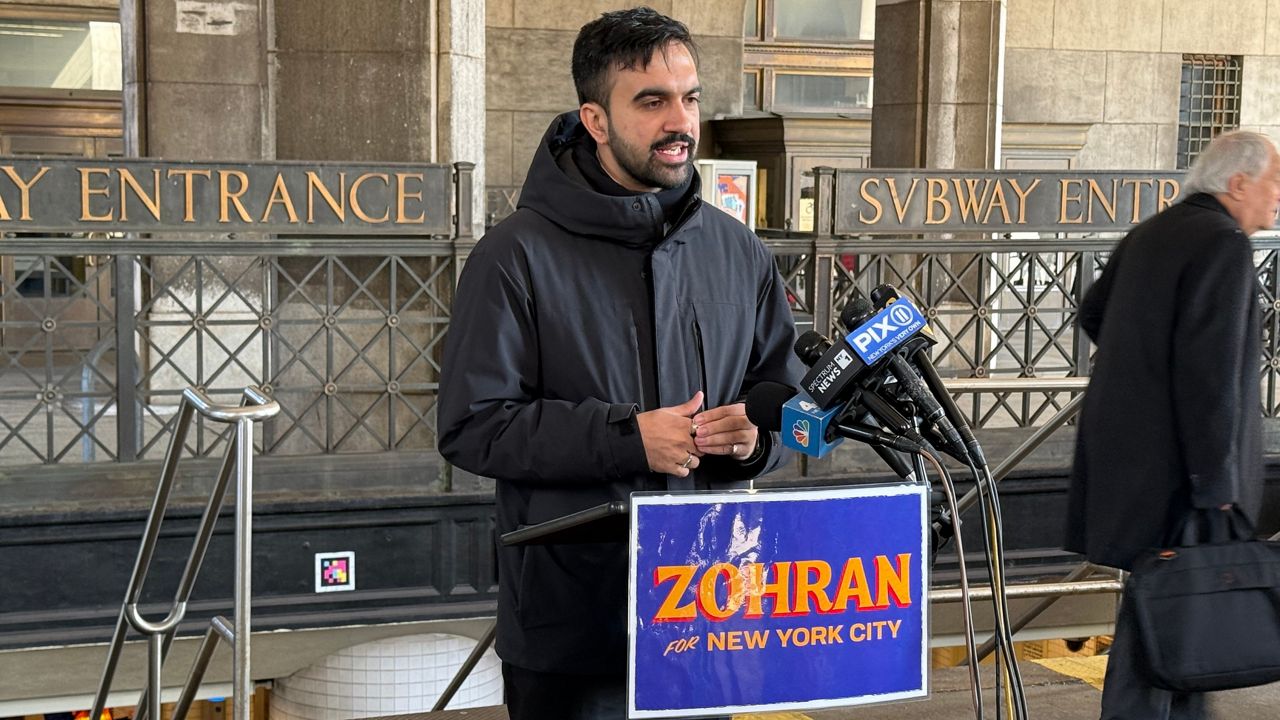Leslie McFadden used to be a New Yorker. Now she calls California home.
A move across the country because of one night in 2015.
“I was drugged and raped in 2015,” McFadden told NY1. “And I did try to stick it out for a few years, but the trauma was just too strong.”
What You Need To Know
- The DOJ opened an investigation into the NYPD’s Special Victims Unit in 2022
- They were examining whether the department discriminated against sexual assault survivors when conducting their investigations
- A NY1 investigation has found survivors are still looking for answers from the NYPD, despite improvements in caseloads
The last thing she remembers was drinks on Stone Street. She would wake up in Woodhull Hospital many hours later, not knowing what happened.
“I just slowly started to piece together that something terrible had happened,” she said.
And then, she says, it got worse.
“An NYPD detective was called to the hospital, and one of the first questions he asked me was essentially: was this really a case of assault or regret?” McFadden said.
The next day, the detective asked for a controlled call. McFadden would call the perpetrator and try to extract a confession.
“During that call, the perpetrator admitted we had sex, and I was just really distraught. The room was spinning,” she said. “Immediately, after that call while I was sobbing, the detective put a form in front of me that he told me would put my case on hold pending further incriminating evidence. So, I signed it. Little did I know, that was actually a case closure form.”
“He didn’t even talk to the assailant,” McFadden said. “He just made a snap decision about the case and then closed it. The message they send to survivors is that, and this is a devastating message, is that you don’t matter and what happened to you isn’t always worthy of investigation unless it’s a slam dunk for them.”
McFadden would become one of 19 survivors to urge the federal Department of Justice to open an investigation into how the NYPD handled sexual assault survivors and their cases.
In 2022, that investigation opened. At the time, the Department of Justice and the U.S. Attorneys’ offices in the southern and eastern districts of New York said they were examining whether the NYPD was conducting gender-biased policing, potentially mistreating victims and mishandling rape investigations.
Two and a half years later, the department has yet to release its findings.
NY1 has spent months examining the department’s approach to rape allegations, interviewing survivors, advocates, police officials and attorneys. Many want to see what the Department of Justice has found.
The leader of the unit says he’s cooperated with the investigation and he’s already moved to make reforms.
“Do you want the report to come out? Do you want it to be released publicly?” NY1 asked.
“I don’t control a lot of whether it comes out or not. I know I didn’t wait,” NYPD Deputy Chief Carlos Ortiz said. “The changes are not because of DOJ. The changes are things we saw are needed.”
The Department of Justice did not comment on this story.
In response to NY1, a spokesman for the U.S. Attorney’s office in the Southern District of New York sent the following statement:
“The joint pattern or practice investigation of the Justice Department’s Civil Rights Division, and the United States Attorneys’ offices of the Southern District of New York and Eastern District of New York into the New York City Police Department’s Special Victims Division remains pending.”
For those who were leading the investigation under the Biden administration, the probe was historic.
“It is the first time the Department of Justice has ever opened a police department investigation focused solely on gender discrimination,” former assistant U.S. Attorney Ellen Blain said.
Blain, now a partner at Clarick Gueron Reisbaum LLP, helped lead the investigation at the U.S. Attorney’s Office. She left that post last summer.
“The new administration is very likely, based on its last time around and based on public statements this time around, to kill wherever the investigation is,” she said.
Blain and others say they anticipate the new administration may not disclose investigations less favorable to law enforcement. So this inquiry — many years in the making — may never see the light of day.
“So many survivors do not even go forward to law enforcement and now when we see they do, at least to the NYPD, so many survivors feel like they weren’t heard,” Blain said. “They weren’t listened to. They weren’t taken seriously. So, to then come forward to DOJ and talk to investigators and relive the crime, but the crime that occurred thereafter by the NYPD allegedly refusing to listen to them, that’s yet another trauma. So, my personal hope is that a findings letter comes out and lets them see that they have finally been heard.”
Controversy started in 2018, a report from the city’s Department of Investigation’s inspector general sent shock waves through the police department — unearthing alarmingly high caseloads in the special victims unit.
Back in 2017, the average annual caseload per investigator in the adult squads was 93, according to the NYPD. It has decreased since then. In 2023, the Queens adult squad had the highest caseload of nearly 69.
“When I first got here, there were a couple of case squads that were over 100. I like to have a cushion of about 55. That’s my safe zone. That’s four to five cases a month,” Ortiz, the head of special victims, said.
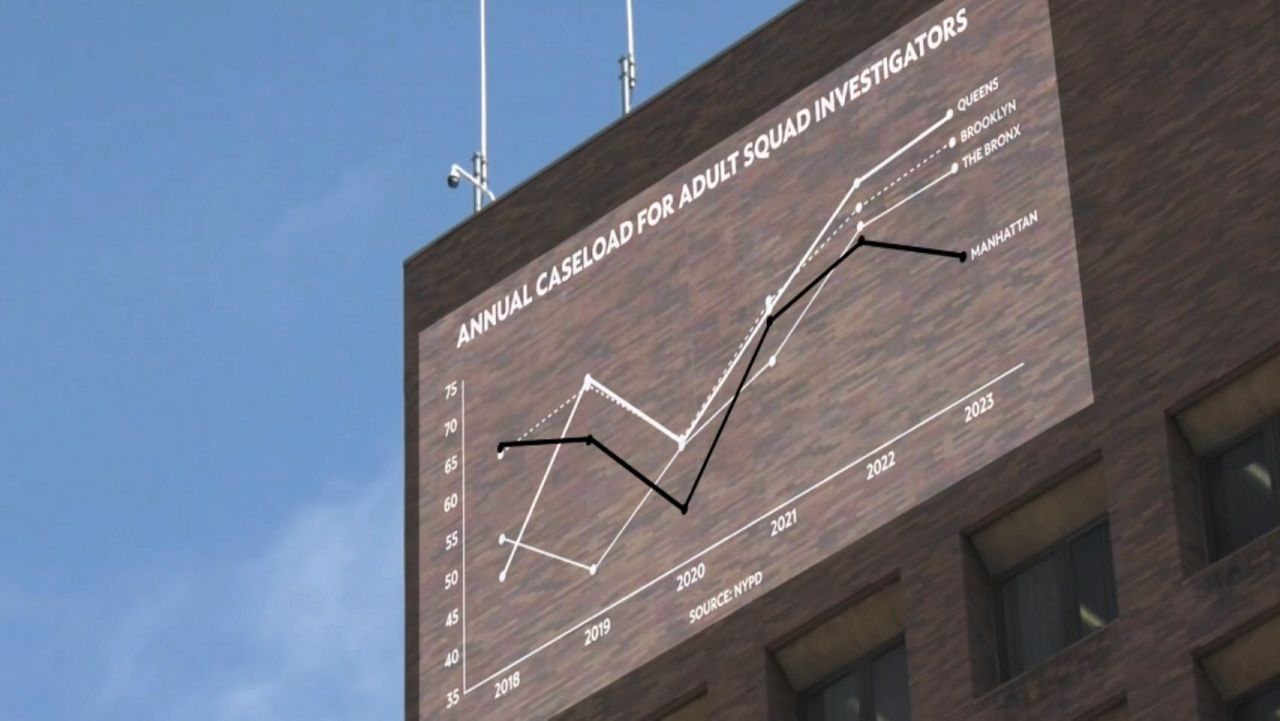
A review of caseload data since 2018 by NY1 shows the annual caseloads for special victims’ adult squads in the Bronx, Brooklyn and Queens have all gone up between 2018 and 2023, when data was most recently publicly available. Manhattan was the only borough adult squad where caseloads went down. Staten Island has a combined child and adult squad, so it was not included in NY1’s analysis.
Meanwhile, the number of rapes reported to the NYPD has also climbed in recent years. There were 1,748 in 2024 — a nearly 19% increase from the year before.
NY1 spoke with one survivor who was among that increase, and are withholding her name, because her case is still under investigation.
She was set up on a date on the east side of Manhattan in the spring of last year. But on that date, she says she was drugged and sexually assaulted.
“I was with him for about an hour and a half, two hours in the bar and he ended up drugging my drink,” she said. “Everything was very hazy for me. I wasn’t really conscious of my movements. I wasn’t aware of what I was doing. The guy brought me upstairs to his hotel room, and he sexually assaulted me when I was there.”
Just like McFadden many years earlier, this survivor says her experience with the NYPD was alarming.
She went to the hospital, got a rape kit done and a drug test. She had codeine in her system.
“Once the two detectives arrived to the hospital, it was within the first five minutes I had a completely different interpretation as to how this was going to go. Their demeanor was overly fatigued. It was disinterested. They were rolling their eyes when I was explaining the facts of what happened to me. It was extremely insincere,” she said.
She says they tried to force her to call her assailant. Then, she says, they didn’t follow leads in the case.
“He shut his notebook and said unless I agreed to the controlled call there was nothing he could do with my investigation, which to me was insane because there was a drug test that was positive, there was a rape kit that was done, there is video surveillance footage from the hotel,” she said.
Her case was transferred. The new detective — unresponsive.
“It’s mind blowing to say this, but my experience after the fact and the aftermath after the assault is almost as bad as the actual assault because it makes you feel so little and so helpless. It makes you really lose trust in the justice system and fairness,” she said.
Jane Manning, director of the group Women’s Equal Justice, is a victim advocate familiar with her case.
“The detective slow walked getting the video,” Manning said. “Never got a search warrant of the crime scene to look for possible evidence of drugs. Never interviewed crucial witnesses to this day, seven months later. Never did a background investigation.”
NY1 brought these concerns to the department.
“I am saddened she had that experience. She shouldn’t have had that experience,” Ortiz said. “And I hope they would reach out and let us know so we can look into it.”
Leaders of special victims say they have made changes despite this case.
Kathleen Baer, director of the special victims unit, was brought into the NYPD in 2023 — a former prosecutor tasked with helping to revamp the division.
They say there is better training. They say they now touch base with victims every 21 days — an effort to make sure survivors know they’re being heard. They do case reviews with advocates to learn from their mistakes.
“Everyone wants to know what is happening on their case,” Baer told NY1. “If you are just out there and you feel like you don’t know, then you feel like nobody cares and that nothing is happening on their case. So, they are so important. And that’s how you build a rapport and build a relationship and build trust and that’s what it’s really about when we’re investigating these horrific crimes.”
In a statement in response to this story, Mayor Eric Adams said: “When we took office, it was clear that meaningful changes needed to be made to the NYPD’s Special Victims Division, and we are incredibly proud of the dramatic reforms we have implemented to improve the division since then. In less than three years, we have made sweeping changes and enhancements to ensure the highest level of integrity in our investigations — this includes enhanced training programs for all Special Victims investigators, building strong relationships with our advocacy community, and much more. While we are always working to improve and enhance processes, we are proud to conduct victim-centered, trauma-informed, and offender-focused investigations of all reported sex crimes.”
Multiple organizations who work directly with the special victims division told NY1 those improvements have made a difference. Even if some metrics continue to lag behind.
For one, recent data shows the NYPD has not made arrests in as many rape cases as it has for murders. A murder in the city is much more likely to be solved than a rape case.
In the third quarter of 2024, the NYPD made an arrest in less than half of the rape cases it was investigating.

“We can’t control the outcome. It could be not enough evidence. It could be not enough for the district attorney to say hey, we have enough,” Ortiz told NY1. “But we control the process.”
And it’s still that process that some are hoping improves. It’s unclear if it will include the U.S. Department of Justice.
“My hope is that they do find evidence of gender bias. My hope is that they issue a series of positive reforms and I hope they stand by those reforms and enforce them,” McFadden said.






